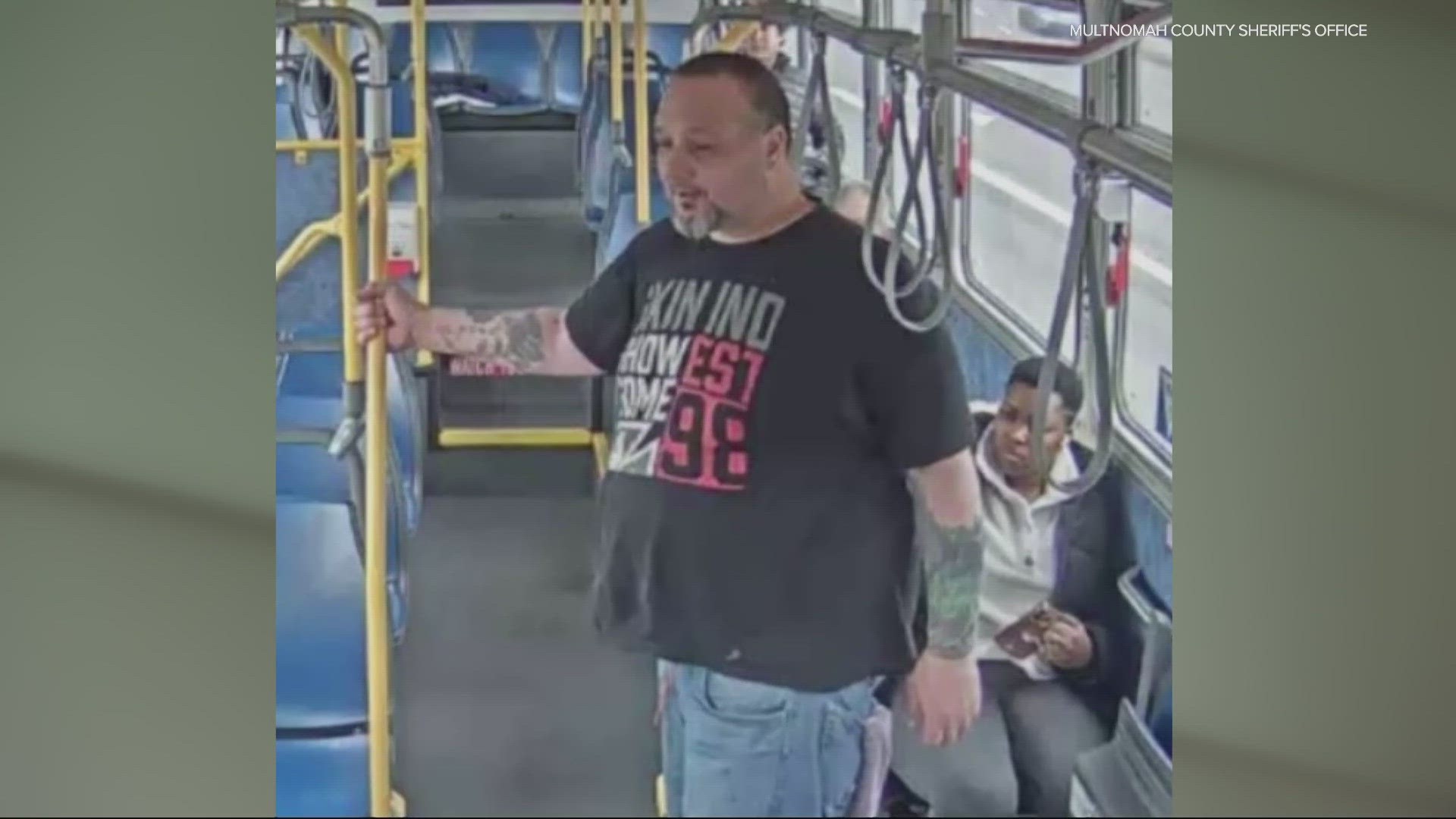PORTLAND, Ore. — Oscar Ortiz regularly commutes on TriMet; it's how he gets to and from work. After living in Portland for 17 years, he has taken the bus thousands of times. However, Ortiz said he was assaulted on board a bus last month and now he's concerned TriMet safety protocols aren't strong enough.
On Feb. 17, Ortiz said he was sitting near the front of the bus when he noticed a man smoking near the back. He decided to tell the driver. The driver asked the man to stop, and a few minutes later, Ortiz said the man who was smoking approached him.
"He called me names. He spat on me," Ortiz said.
Ortiz, who is a gay man, said the man assaulting him used a homophobic slur and then punched him in the face.
"My mind got fixated on that word. Nothing else mattered at that point," he said.
He asked the driver to call police. As Ortiz separated himself from the scuffle, the man walked back toward the back of the bus. Minutes later, he returned and began punching Ortiz for a second time.
Transit police identified the attacker in a flyer as a man with "distinctive arm tattoos." The Multnomah County Sheriff's Office has since taken over the investigation and said it's investigating it as a bias crime.
Ortiz said he was disoriented and the bus driver asked him if he needed medical attention.
"At that point, I could not make sense of what was happening. I have never been assaulted that way by a stranger," Ortiz said.
He said he told the bus driver, "I don’t need an ambulance but I do think I need some type of help. I need help."
Ortiz said he's not sure why the driver didn't call 911. At that point, he stepped off the bus at Northeast 102nd Avenue and Northeast Halsey Street to call police himself.
A spokesperson for TriMet said the driver did call their operations command center and asked Ortiz if he needed an ambulance.
"Mr. Ortiz indicated he did not need medical attention, and the operator verified comments Mr. Ortiz was making meant that Mr. Ortiz planned to call 911 directly," said Roberta Alstadt, Trimet's director of communications.
Alstadt explained that TriMet follows the direction of the rider. If they don't have visible injuries or choose to contact 911 on their own, the driver does not call for help.
"After Mr. Ortiz indicated the bus could leave, the operator ensured Mr. Ortiz had a good description of the suspect and the information to identify the bus so police could request security camera footage to aid in their investigation," Alstadt said. "The operator then continued the bus in service, as Mr. Ortiz had no visible signs of injuries and based on Mr. Ortiz own words and actions."
According to Alstadt, assaults related to the transit system decreased 59% from 2022 to 2023. But a TriMet survey shows safety is still a top concern for riders. Last October, eight in 10 riders said other riders' behavior is the reason they feel unsafe on board.
"I have seen other people get punched, I have seen other people get hurt," Ortiz said. "But I never expected to actually be the person that gets hurt."
Ortiz said TriMet did not reach out to him and he's not aware of any arrests made in the assault case.
"TriMet could have just called me at some point and said, 'I’m sorry that happened to you, we understand how difficult this is. We're doing our best to try to find the person who did this to you,'" he said.
Ortiz added: "I want for people to know that when they are in the bus, they are practically on their own."

